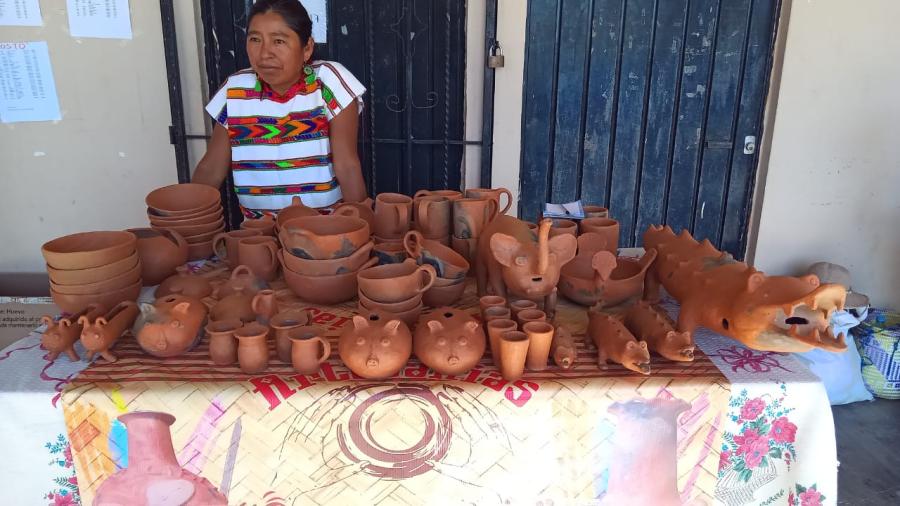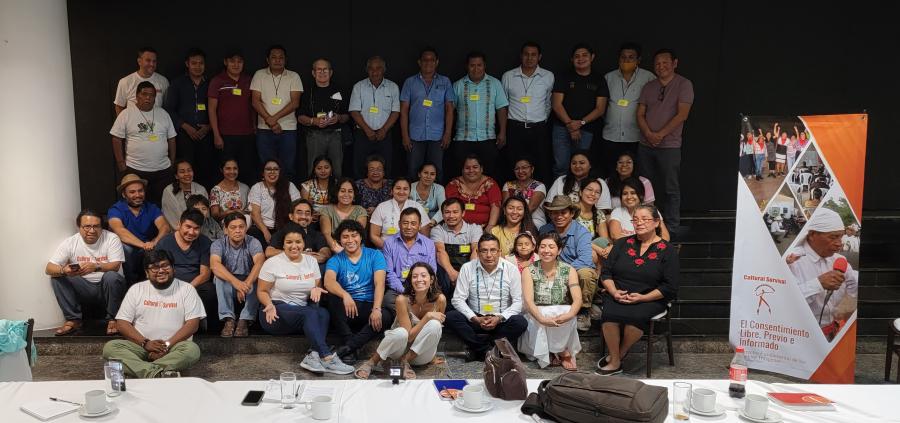Classroom Activity
This classroom debate is based on materials used in our Spring 1999 student conference, "Women in the Indigenous Movement in Chiapas." This lesson should be used with the full-length readings from the conference.
The activity is designed to engage students in a debate over the traditional role of Maya women in Chiapas, and the Revolutionary Women's Law outlining the rights of women in the Ejercito Zapatista de Liberacion Nacional. Students should argue about the changing roles and participation of Maya women in the home, the community, and in the international human rights movement. Students in the class could be divided into "traditionalists" and "progressives" arguing for or against three ballot questions posed (the ballot questions are based on principles contained in the EZLN's Revolutionary Women's Law). V Revolutionary Law on Women
The law establishes that women enjoy along with all their rights regardless of creed, color or political affiliation, the right to: participate in the revolutionary struggle; work and receive a fair salary; decide on the number of children they wish to have; have basic attention given to the health and nutrition of their children; education; freely choose their spouse; not be beaten or abused; and to participate in the issues of their community and hold positions of political and other responsibility should they be elected freely and democratically.
-EZLN
Debate on the Role of Maya Women in Chiapas
Read the following three proposals put forward for a vote. In your role as "traditionalists" or "progressives" formulate an argument why each of the proposals should or should not be passed. Further information on the role of Maya women in traditional and contemporary society in Chiapas is given with the proposals below. Use this information to get you started on your argument. A two-thirds majority vote will pass the proposal. Anything less than two-thirds and the proposal will not be passed.
Ballot
Proposal One
Women will have the right to hold cargos, or political and community offices in their communities if they are elected fairly and democratically by their fellow community members.
_____Yes _____No
Traditionalists
Women cannot hold cargos, only men can hold cargos. Women are included in politics and political participation by virtue of the fact that men who hold cargos must be married and must discuss their decisions with their wife beforehand.
Progressives
Women do not have a voice or say in politics. It is a myth that men discuss all their decision making with their wives, and that even if they did, that the opinions of their wives would necessarily be respected. Plus, not all of the women of the community have equal access to the ears of cargo holders, while all the men of the community can openly discuss issues with cargo holders.
Proposal Two
Women should have access to contraception and should be able to decide how many children they wish to have.
_____Yes _____No
Traditionalists
Married couples are made up of a woman and a man. Together collectively they need to decide on how many children to have. Contraception may hamper the needs of the family because many children are required to do all of the work in the milpa and to help with the sewing, cooking and care of younger siblings.
Progressives
Women do not feel that they have equal say in a marriage when it comes to child bearing and sexual relations. Sometimes women are abused and sexually assaulted. Twenty percent of Indigenous children in Chiapas die before the age of five, and many women feel that by having fewer children hey will be able to care for them better, and provide more food and medicine to each of them.
Proposal Three
Women should be able to choose their spouse. _____Yes _____No
Traditionalists
In traditional Maya society, men choose the girl that they wish to marry. The family of the man then makes overtures to the family of the girl, offering food and alcohol, labor and money. After several such overtures, which form a ritual process, the family of the girl may or may not allow their daughter to marry the man. The man typically then pays the girl's family more money and then the couple will work in the girl's household for a year or more before they then work for a while at the family of the young man.
Progressives
Maya women are not objects to be bought and sold. Maya women are human beings and have the right to refuse a suitor if they do not like him.
Article copyright Cultural Survival, Inc.



